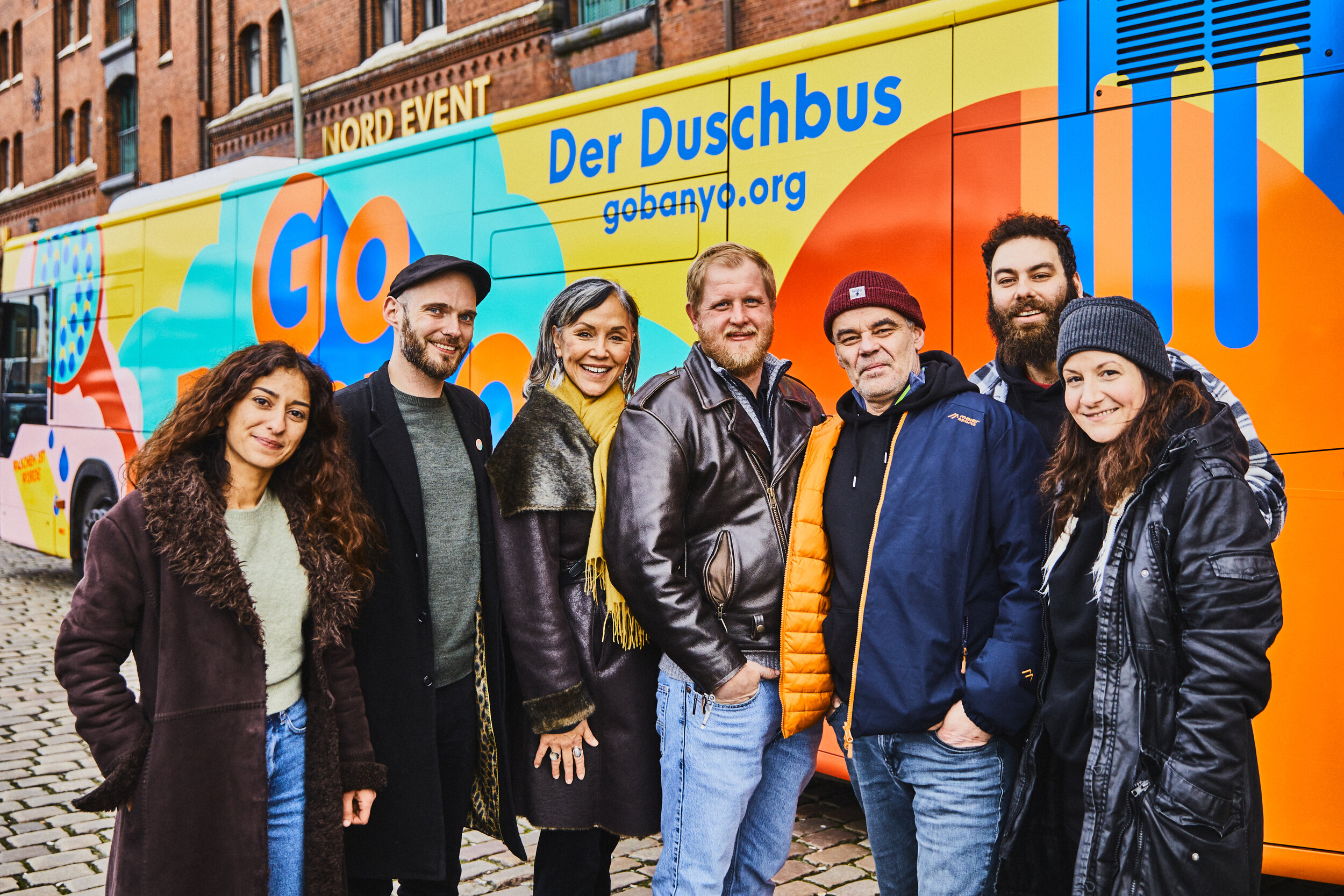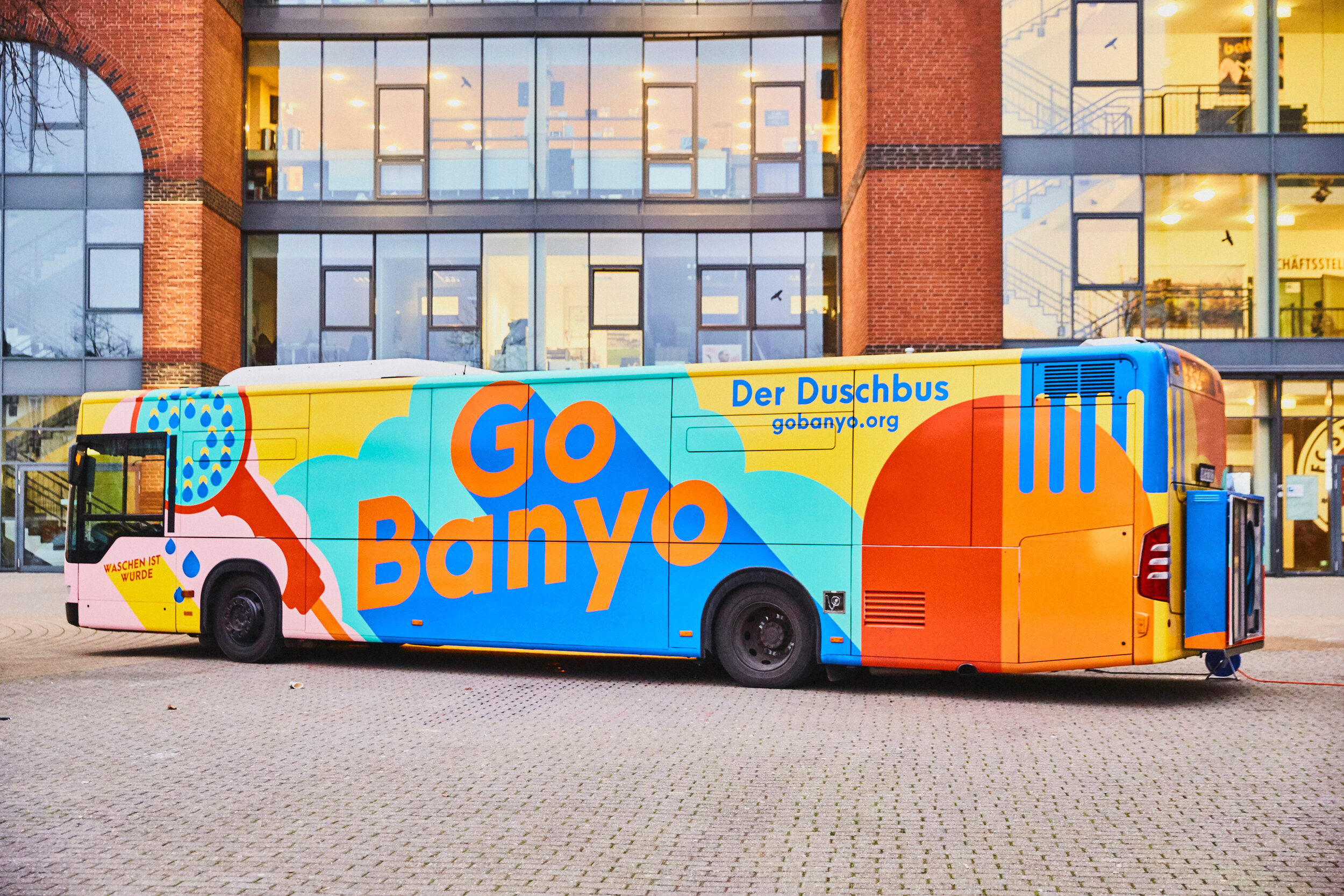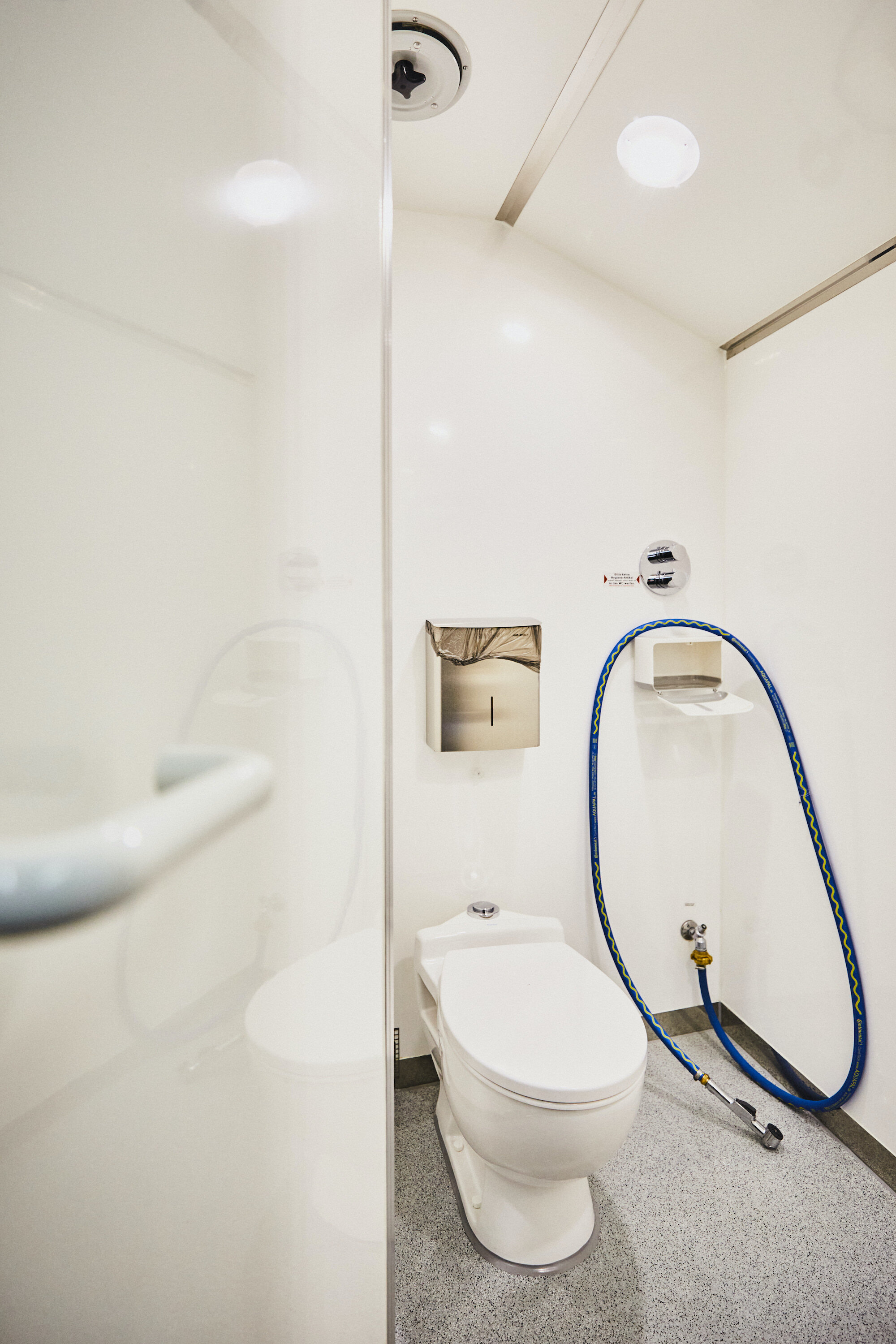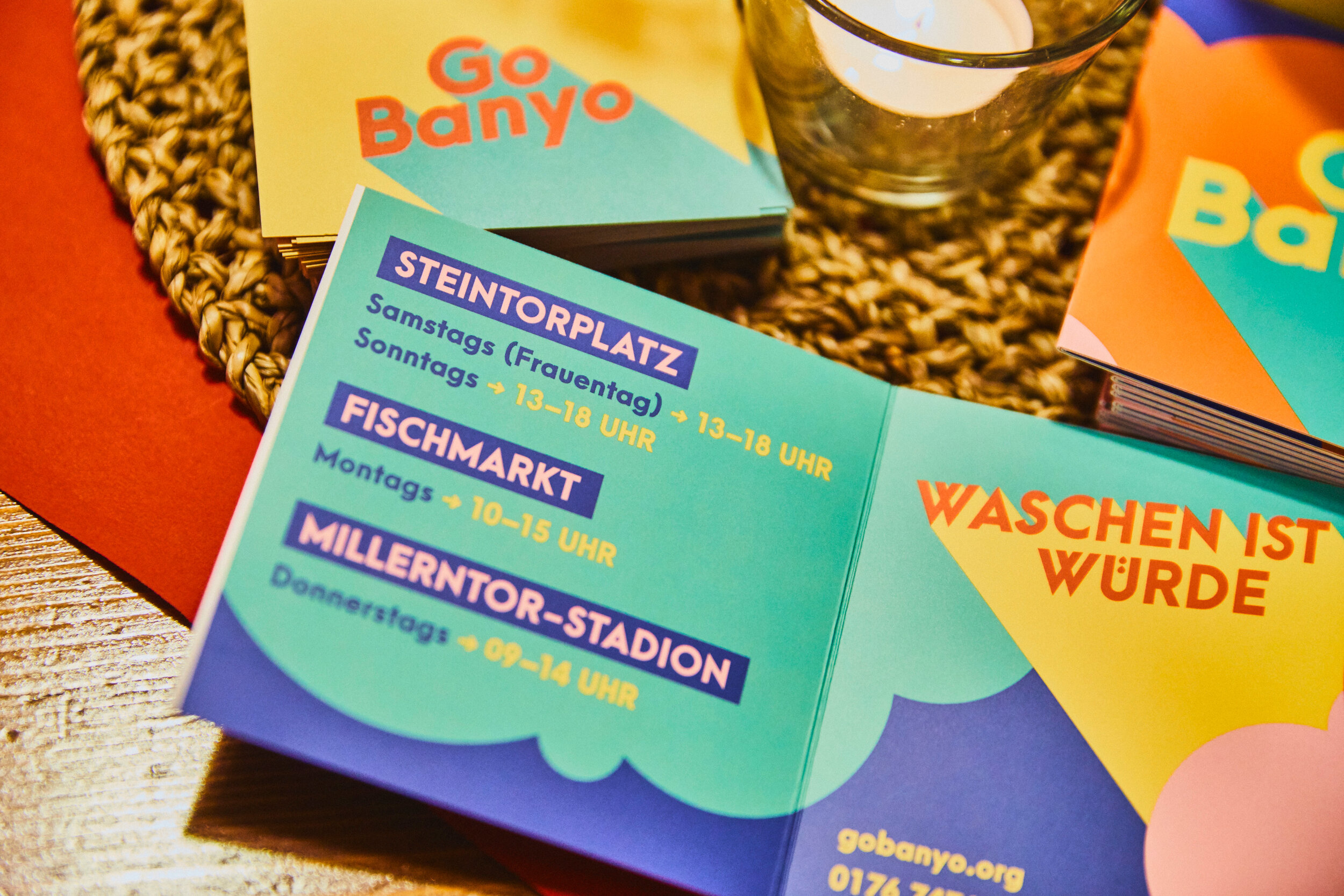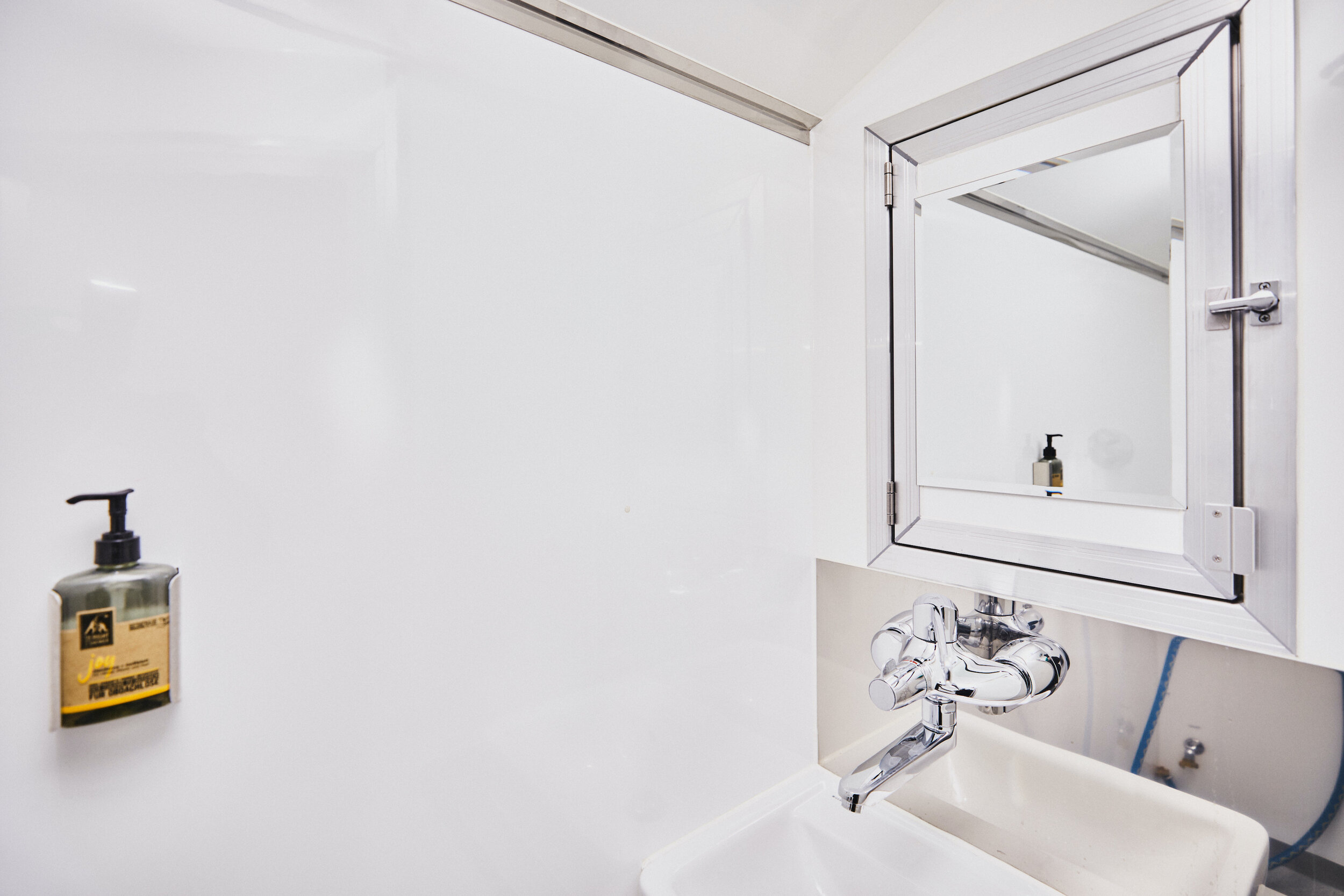GoBanyo Brings Radical Hospitality® to Hamburg, Germany
June 10, 2020
GoBanyo case study illustrates the impact of Unilever brand The Right To Shower’s collaboration with mobile hygiene pioneer LavaMaeˣ
GoBanyo Backstory: For a Shower is Dignity
During a decade of being unhoused in Hamburg, Germany, access to hygiene was one of the biggest challenges for Dominik Bloh, one of GoBanyo’s founders. Even today, there are only 17 showers available at day shelters for the 2,000 unhoused residents in this city of 1.8 million.
When he finally got his own apartment, Bloh wrote a book about his experiences (a 2017 best seller) and became a full-time activist and advocate for the unhoused.
At about the same time he began thinking about mobile showers, he came upon LavaMaeˣ and its Radical Hospitality approach: meeting people where they are and treating them with extraordinary care. That resonated with his own experience, and Bloh ran with the concept.
With the help of the LavaMaeˣ BuildIt DIY Toolkit for replicators, Bloh pulled together a four-person team and they created the nonprofit GoBanyo. The founders talked with potential partners (such as the water department) and raised €168,641 through a crowdfunding campaign to pay for converting a bus for mobile hygiene.
Six months later, the bus was ready to go with three shower-and-toilet units. On December 5, 2019, GoBanyo launched shower service. It’s Hamburg’s first mobile hygiene bus and only the second in Germany.
How LavaMaeˣ helped
The DIY Toolkit was just the start of LavaMaeˣ’s support for GoBanyo. In November 2019, GoBanyo partners Joko Weykopf and Jannes Vahl flew to California to spend a day on-site at the LavaMaeˣ shower service in Los Angeles. There Joey Freid, a replication community engagement lead with LavaMaeˣ, gave them intensive training on shower operations, working with guests and more.
GoBanyo invited Fried to visit the team in Hamburg after they had been operating for a couple of months. Courtesy of Unilever’s The Right To Shower brand, whose profits support LavaMaeˣ and other mobile hygiene programs, Fried spent three days with GoBanyo, working alongside and observing the team; providing training; and making recommendations.
“If they’re up and running, I always work with them first before doing any training,” says Freid. “It gives me a barometer, and then I tailor what I’m going to teach them as best as I can.”
For GoBanyo, “I did lots of advising around on-site staff support and wellness,” he says. The training included recommendations such as holding weekly all-staff meetings to allow people to vent and share experiences, and having a therapist on call for particularly tough days.
“We were able to implement best practices that we would otherwise have had to develop ourselves over a long time,” says GoBanyo CEO Christian Poelmann, who takes care of day-to-day operations. “The training gave us confirmation that we are on the right track and gave us the security we needed to further improve our offering. ”
The training also included hands-on work in the philosophy and ideas behind the Radical Hospitality approach, such as always greeting guests by name. “The GoBanyo group was one of the best at Radical Hospitality from the start—it was already their standard,” Freid says.
The demonstrations of de-escalation tactics were particularly helpful, says Poelmann, citing advice such as how to be watchful “without looking like a cop” and to win guests over with “secret gifts,” such an extra T-shirt for someone who has stepped away from a fight or a new pair of socks for a guest who kept to her allotted shower time.
“The training significantly improved our ability to deal with challenging situations, such as arguments or violence on the bus,” he says. “We had underestimated what would be needed in the event of a dispute.”
Impact and success
GoBanyo scaled up from its launch to provide shower service four days a week at three locations in Hamburg, with a capacity of 120 guests per week. The COVID-19 crisis led to a five-week hiatus, but in cooperation with the public swimming pool operator Bäderland, service is now up and running at one location; the city is providing protective gear. GoBanyo continues to work toward its goal of providing service five days a week and adding a second mobile hygiene bus.
“We want to reach as many people as possible and provide the best possible hygiene service,” says Poelmann. “We are also in contact with other German cities so we can share our experiences and collective knowledge—that’s very important to us. And we’re planning more campaigns, workshops and lectures.
“The greatest success,” he adds, “would be if there were no homelessness anymore.”
GoBanyo profile
Hamburg, Germany
Team: 5 staff, plus about 20 volunteers/week
Mobile units: 1 bus with 3 shower-and-toilet units; 1 unit is wheelchair accessible
Service: 4 days/week
Guests served: up to 120/week
Radical Hospitality tips and lessons
Don’t underestimate the potential psychological toll on team members; give them space to talk about their experiences and access to professional help.
Simple efficiencies, such as keeping tools and supplies in handy, go a long way toward staying on schedule.
Giving “secret gifts” to guests thanks them for following the rules when they might be resistant.

